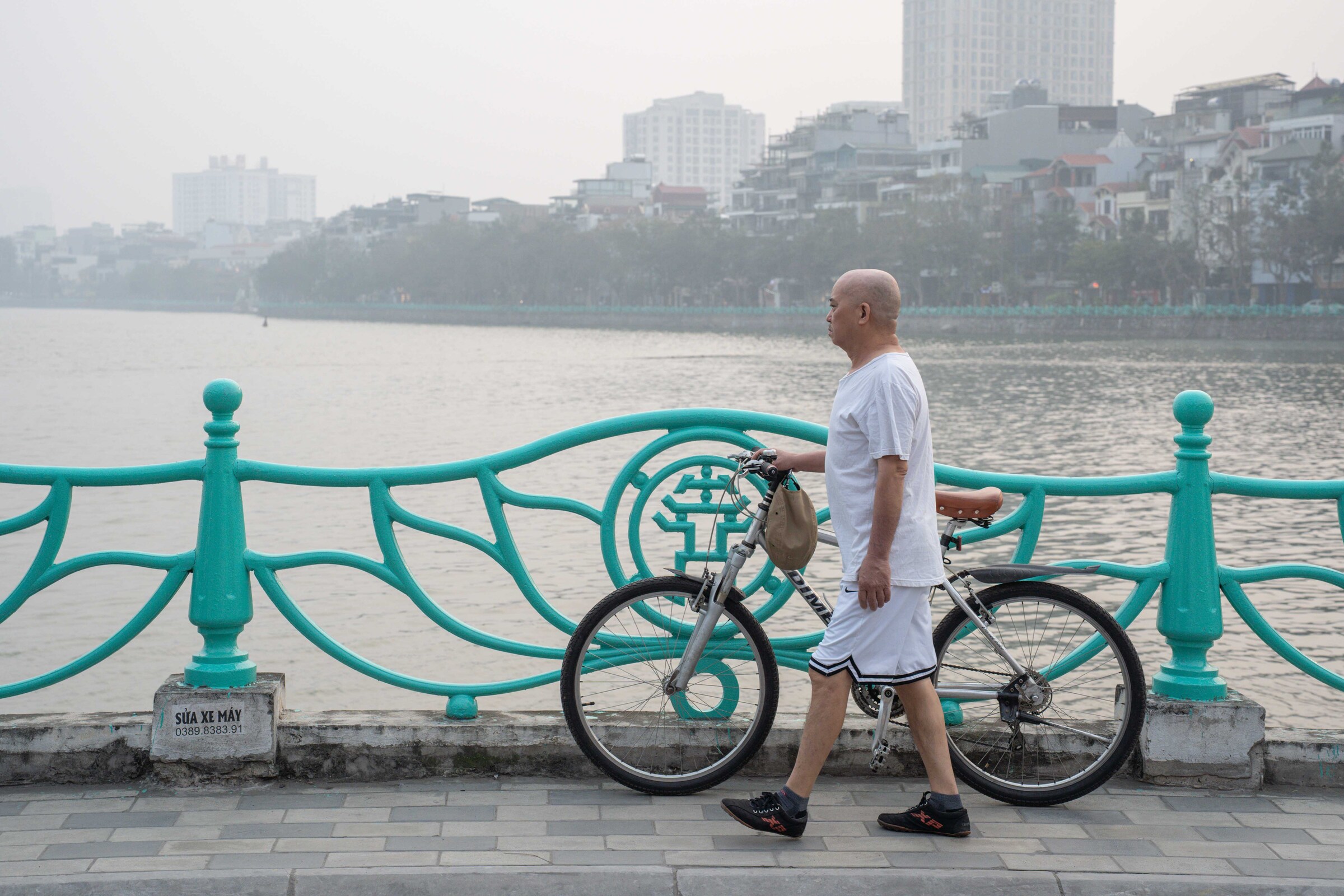In mid-August, 80-year-old Hanh and her former chemistry classmates, aged 77 to 82, returned to Hanoi National University for a reunion. With gray hair, some using canes and others needing assistance to walk, they gathered to reconnect, reminisce, and celebrate their shared past.
Hanh recounted that her chemistry class at Hanoi National University had over 80 students who studied and grew up during challenging times. Despite experiencing war and evacuations, they all thrived, pursuing careers in education, law enforcement, and healthcare. They have maintained their class reunions for decades, although attendance dwindles each year due to deaths and declining health.
In the 1960s, when Hanh graduated from university, the average life expectancy in Vietnam was around 45 years. In 2024, the General Statistics Office announced that this figure had risen to 74.7 years, exceeding the global average by over two years. This represents a 30-year increase in life expectancy over 60 years.
Previously, war, famine, epidemics, limited access to healthcare, and a high infant mortality rate contributed to Vietnam's low average life expectancy. For example, the crude death rate (the death rate for the entire population) was 21% between 1960 and 1965, dropping to 5.6% in 2024. With the end of the war, improved living conditions and social welfare, and increased focus on health, along with advancements in medicine, greater access to healthcare, and enhanced healthcare services, life expectancy has steadily increased.
Statistics also show that Vietnamese women live approximately five years longer than men. In 2024, the average life expectancy for women was 77.3 years, while for men it was 72.3 years. Life expectancy also varies geographically. In the Central Highlands and the northern midlands and mountainous areas, the average is 72 to 72.8 years, while in the southeast, the Red River Delta, and the Mekong Delta, it is higher, ranging from 75.7 to 76.5 years.
In some localities like Ho Chi Minh City, Hanoi, and Da Nang, the average life expectancy exceeds 76 years. These areas boast developed economies and easy access to high-quality medical services, with urban residents often undergoing regular health checkups for early disease detection and treatment. Meanwhile, localities with lower average life expectancies, such as Lai Chau, Kon Tum, and Dien Bien, have lower living standards and limited healthcare access. Additionally, some remote mountainous areas still practice customs and traditions that negatively impact the health of adults and children, contributing to higher mortality rates and reduced life expectancy.
Living longer but not healthier
Professor Nguyen Dinh Cu, former Director of the Institute of Population and Social Affairs at the National Economics University, a veteran demographer, acknowledges that while Vietnam's average life expectancy is higher than the global average, healthy life expectancy is lower. In 2019, a 60-year-old man in Vietnam could expect to live an additional 12.9 healthy years, and a woman 16.4 years, compared to the global averages of 14.8 and 16.6 years, respectively.
Many elderly individuals live with underlying health conditions. Studies indicate that 48.5% of older adults suffer from arthritis, nerve pain, or rheumatism; nearly 41% have hypertension; 37.5% experience frequent body aches; 30.3% have chronic back pain; and 18.8% have digestive issues. Many older adults also engage in unhealthy habits like excessive alcohol consumption and tobacco use.
Several factors contribute to the high number of years lived with illness in Vietnam. In addition to nutrition, unhealthy lifestyles, and environmental pollution, there is an increasing prevalence of non-communicable diseases, particularly cardiovascular diseases, cancer, and diabetes.
The General Statistics Office projects that by 2030, Vietnam will have 17.2 million elderly people, and by 2049, this number will reach nearly 27 million. Le Thanh Dung, Director of the Department of Population under the Ministry of Health, states that by 2038, just 14 to 15 years from now, one in five Vietnamese will be over 60, representing 20% of the population.
Most elderly individuals live with their children due to the Vietnamese cultural tradition of filial piety and multi-generational households, but this percentage is rapidly declining. In 2009, the proportion of elderly people living alone (either by themselves or only with their spouse) was 18%, increasing to 27% in 2019. This trend indicates a rapid decrease in the number of elderly people living with their children and grandchildren. Consequently, self-care and family-based eldercare will become increasingly challenging due to a shortage of family caregivers.
 |
An elderly man relaxes after a morning bike ride around Hoan Kiem Lake, Hanoi. Photo: Giang Huy |
An elderly man relaxes after a morning bike ride around Hoan Kiem Lake, Hanoi. Photo: Giang Huy
Faced with these demographic challenges, experts recommend adapting healthcare systems for the elderly, including long-term care, comprehensive support, and improved quality of life. They also suggest establishing geriatric training programs and developing a young workforce in Vietnam.
Doctor Nguyen Trung Anh, Director of the Central Geriatric Hospital, further emphasizes the need to develop specialized personnel in geriatrics and related fields for the prevention, treatment, and care of age-related conditions such as dementia, Parkinson's disease, cardiovascular and metabolic diseases, coronary interventions and pain management, musculoskeletal diseases, and respiratory illnesses.
Recently, the Ministry of Health proposed providing scholarships and tuition support for students specializing in geriatrics to develop a workforce for eldercare. To address population aging, the Ministry also proposed policies like government-funded health insurance for uninsured elderly individuals. Currently, about 5% of older adults in Vietnam lack health insurance.
Despite living with her children, Hanh emphasizes her independence, supported by her pension and health insurance. She actively maintains her health through a balanced diet, regular exercise, and supplements. She also adheres to her medication schedule and attends follow-up appointments diligently.
"I hope to attend many more class reunions and see my friends for years to come, so we can enjoy a happy, healthy, and fulfilling old age," Hanh said.
Le Nga












